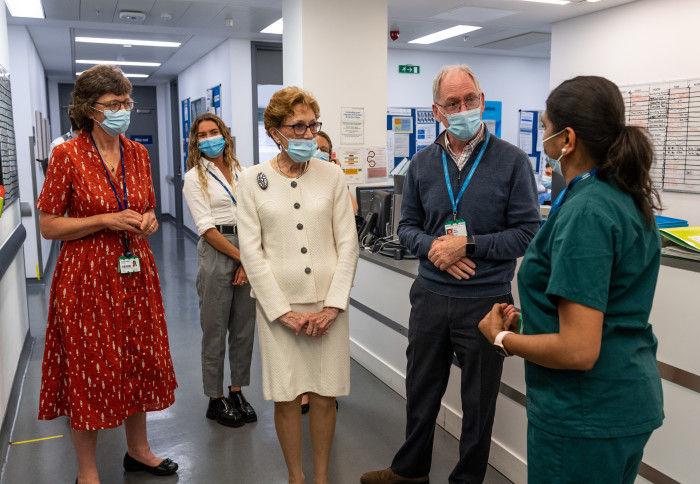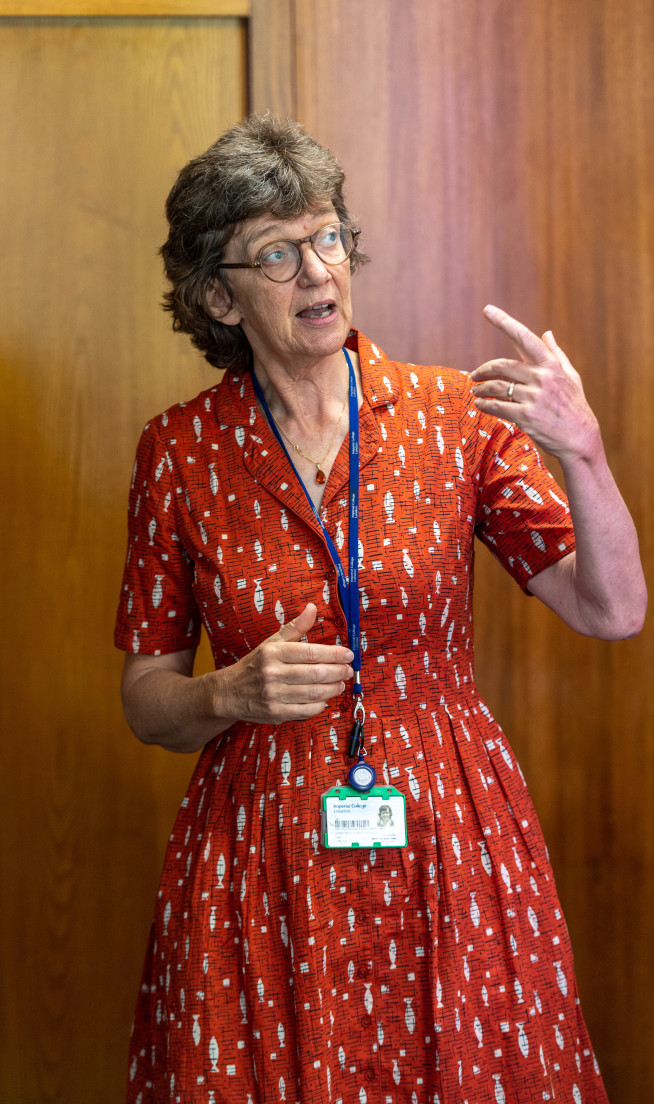Imperial addiction researchers showcase work to improve treatments & reduce harm

Dame Professor Carol Black, who led the government’s independent review on drugs, visited the Division of Psychiatry's addiction research group.
In a visit to the Division of Psychiatry in the Department of Brain Sciences, located at Imperial’s Hammersmith campus, Professor Dame Carol Black met with Imperial researchers working to better understand and tackle addiction, as well as gain insights into the MARC Clinical Addiction training programme.
Dame Carol was appointed to head up an independent review for the UK Government into drugs, with a focus on prevention, treatment and recovery. In the second part of her two-part independent review which was published last year, among the recommendations in the report are the Department of Health and Social Care to promote innovative research on addiction by offering incentives or rewards to organisations and companies.
Drug misuse and addiction causes extensive harm to individuals, their families and their communities.....it is clear that... there is not nearly enough research into addiction prevention treatment and recovery. Professor Dame Carol Black
The report also recommends changes to how treatment services in England are commissioned and funded, as well as the need to improve employment opportunities and housing to support the recovery of people with addiction.
During her visit to Imperial, hosted by Professor Anne Lingford-Hughes, Head of the Addiction Research Group and Division of Psychiatry, Dame Carol met with a range of PhD students and researchers based in the Division of Psychiatry as well as Prof Paul Matthews, Head of Dept of Brain Sciences. She learnt how multi-disciplinary work undertaken across the group is addressing the critical need to understand the biology of a range of addictions eg alcohol, heroin, gambling to improve treatment and assess potential new pharmacotherapeutic targets, and about the lack of people advocating on behalf of people with addiction.

Alongside Professor Lingford-Hughes, she heard from Dr Tony Goldstone, Senior Clinical Lecturer in the Division of Psychiatry, Department of Brain Sciences who leads the psychoneuroendocrinology group assessing the therapeutic potential of appetitive hormones to treat alcoholism, smoking and obesity.
Dr Leor Roseman from the Centre for Psychedelic Research spoke about the Centre’s trials of psilocybin as a treatment for opioid addiction and studies into gambling addiction, depression, and anorexia.
Dr Louise Paterson, a research fellow in the Neuropsychopharmacology Unit, presented the NCORE study which is seeking to identify novel targets in the brain to find new treatments to improve treatment for detoxification and relapse prevention in opioid addiction. Dr Katherine Herlinger shared her experiences as a recipient of the MARC addiction clinical research PhD studentship.
Imperial College London are carrying out important work to increase understanding and reduce harms. Professor Dame Carol Black
Dame Carol toured the clinical research facilities at the ICTEM with Professor Martin Wilkins, Vice-Dean for Research in the Faculty of Medicine, and spent time discussing addiction research and treatment with researchers.
The addiction research group is part of Imperial’s Division of Psychiatry in the Department of Brain Sciences. The mission of the Department is to develop and sustain a unique portfolio of translational research in neuroscience and mental health that is recognised internationally for scientific excellence, for leading innovation in patient care and for supporting the training of leaders for the next generation.
Article text (excluding photos or graphics) © Imperial College London.
Photos and graphics subject to third party copyright used with permission or © Imperial College London.
Reporter
James Heyburn
Communications Division